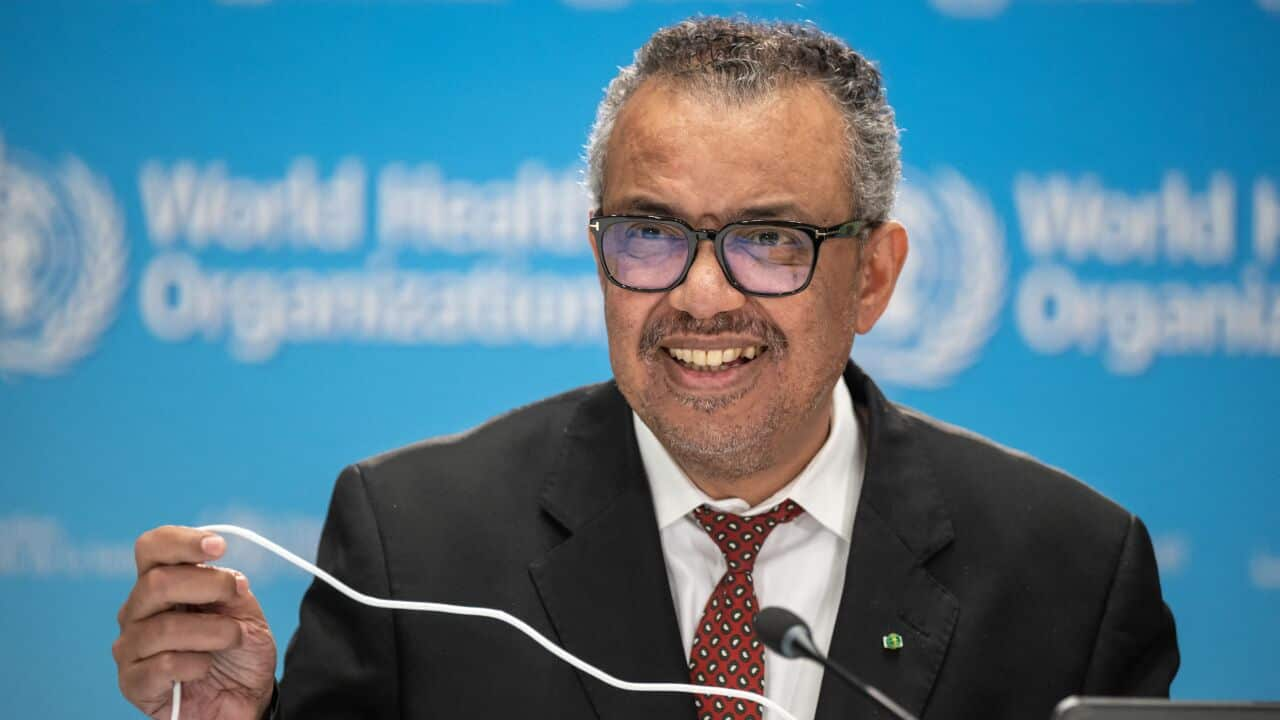Key Points
- The WHO has recommended the use of a second malaria vaccine for children.
- The vaccine, known as R21/Matrix-M, will begin to be rolled out in mid-2024.
- R21/Matrix-M is mass manufactured by India's Serum Institute.
The World Health Organization (WHO) recommended on Monday the use of a second malaria vaccine to curb the life-threatening disease spread to humans by some mosquitoes.
"Almost exactly two years ago, WHO recommended the broad use of the world's first malaria vaccine called RTS,S," WHO chief Tedros Adhanom Ghebreyesus told a briefing in Geneva.
"Today, it gives me great pleasure to announce that WHO is recommending a second vaccine called R21/Matrix-M to prevent malaria in children at risk of the disease."
R21/Matrix-M, developed by Britain's University of Oxford, will become available by mid-2024, Tedros said, adding that doses would cost between $2 and $4.
"As a malaria researcher, I used to dream of the day we would have a safe and effective vaccine against malaria. Now we have two," Tedros said.
"Demand for the RTS,S vaccine far exceeds supply, so this second vaccine is a vital additional tool to protect more children faster, and to bring us closer to our vision of a malaria-free future."
Over 20 million doses have already been produced by Serum Institute
R21/Matrix-M is mass-manufactured by Serum Institute of India and uses Novavax's Matrix M adjuvant.
Adar Poonawalla, CEO of Serum Institute of India, said it had already produced more than 20 million doses in anticipation of WHO's recommendation.
"We will ramp it up as per what the demand requirements are," he said in an interview. "We hope that by the end of 2024, there will be zero mismatch of demand and supply, with our supply coming into the system."
The vaccine will compete against the RTS,S shot by GSK Plc (GSK.L), which was recommended by the United Nations agency in 2021 and sold under the brand Mosquirix.
LISTEN TO

Calls for faster rollout of malaria vaccine
SBS News
18/04/202304:39
The WHO said both vaccines had shown similar efficacy in separate trials, but without a head-to-head trial there was no evidence showing whether one performed better.
The agency has left it to countries to decide which product to use based on various factors, including the affordability and supply.
"GSK has always recognised the need for a second malaria vaccine, but it is increasingly evident that RTS,S, the first-ever malaria vaccine and the first-ever vaccine against a human parasite, set a strong benchmark," GSK said in a statement.
The company added that over 1.7 million children in Ghana, Kenya and Malawi had received at least one dose of the shot and it would be rolled out in another nine malaria endemic countries from early next year.
Nearly half a million children in the African region die every year from Malaria.










